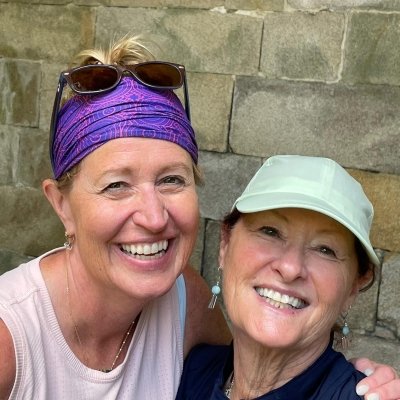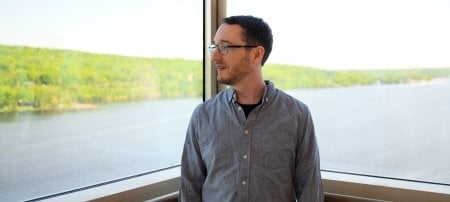Carrie Halborg Schaller ’87 retired from Dow Inc., based in Midland, Michigan, in 2022, capping off a career with the materials science leader spanning 35 years.
Schaller served as the business process director for manufacturing operations at Dow, overseeing systems for manufacturing, engineering, and environmental health and safety operations. She led the team that implemented the next generation of tools and processes for manufacturing and engineering (M&E) globally, and was responsible for teams leading manufacturing cybersecurity, M&E architecture, and M&E IT project management.
Schaller earned her Bachelor of Science in Business Administration from Michigan Tech with a focus in management information systems, becoming a certified Six Sigma black belt. In addition to serving on the North American steering team for the Women's Innovation Network, Schaller served as Dow's matching gift coordinator for Tech.
Originally from Hancock, Michigan, Schaller routinely brings her expertise back to her alma mater. She is a member of the Presidential Council of Alumnae, and served as a campus recruiter for many years. In 2013, she was appointed to the Dean's Advisory Council (DAC) for the Michigan Tech College of Business, and in 2017 was inducted into the esteemed Academy of Business. She is the current chair of the DAC.
Schaller and her husband Mike are parents of three adult children and reside in Midland, Michigan.
Q&A With Carrie
Q: Reflecting on your career, what three words best describe the overall experience?
CS: Growth, change, influence.
Q: What were keys to your career success?
CS: I joined Dow thinking I would work for a few years and then go on to grad school or law school. Although I worked 35 years for the same company, I held more than 10 different jobs. A key for me was to continue to grow, change, and seek new opportunities. I sought new roles for both skill development (lateral moves) and job growth (promotional). It was important to foster good relationships at all levels, as opportunities came from many directions. Keeping my eyes open, developing new skills, and having a willingness to take a risk on opportunities was the key.
Q: What was your top career moment? Toughest?
CS: My top career event was starting up our manufacturing cybersecurity program. Around 2011, we and other companies began to recognize potential cyber-terror or insider threat exposure to our manufacturing facilities. Having the opportunity to learn, build a team, and implement emerging technologies was satisfying.
Probably my earliest years in people management were the toughest. It took time to confidently handle difficult messages, reorganizations, and day-to- day unexpected situations. Being what I've always felt to be a "people person," I thought people leadership would be an easy transition. But it takes time, understanding you will make mistakes, and having peers, leaders, and others from whom to seek advice.
Q: Describe the workplace or industry transformations you saw in 35 years.
CS: I joined Dow in 1987 in a very technical role. At that time, in-house IT departments largely built and maintained their own tools, customized to very specific company needs. Over time, as commercially available enterprise software became more advanced, our IT departments added value by understanding (and in some cases influencing) business processes, and implementing/customizing purchased tools. This is far more efficient, and requires those working in the field to gain a better understanding of their client base.
Q: Share your advice for women seeking leadership careers in STEM.
CS: Don't be afraid to grow beyond the technologies you are comfortable with. It's important to be rooted in technology so, as you grow in organizational and/or technical leadership, you continue to have a solid understanding of what your teams are doing. It takes practice to develop as a leader—to balance understanding the work without micromanaging, while not becoming too hands-off.
Start small. Manage an intern. Gather feedback as you grow in managing people and projects, and invest in developing your leadership skills the same way you would develop technical ones. Mentor and coach others from as early a time as you can. You always have something to share with others!
Q: Describe your thoughts on work-life balance.

CS: We spend a lot of time thinking about and working on balance, and looking back, I will say that my balance continually shifted over time. Mike and I raised three active kids while both working at Dow. Initially I would fret over each work or childcare decision like I was going to have to live with it for 20 years. Over time, I learned that we needed to make good decisions for the time we were in, and make more later. My husband and I each had times where our roles were heavy in travel or project commitments, and needed to give and take with each other. I worked less than full-time for more than half of my career, negotiating each new role with the schedule I worked, to try and balance what I could. I was flexible, and my work leadership was too, as long as we had a good dialogue.
The important thing is not to beat yourself up over each day that doesn't seem perfectly balanced, but to look back over time and assess whether you're keeping a reasonable balance of work, family, health, friendships—whatever makes you whole.
Q: What will retirement look like for you? How do you hope to spend your time
CS: I am enjoying being on my own schedule after such a full career. I appreciated the opportunities I had to travel the world in my career, and am now traveling to other places I choose. My husband and I have some upcoming trips, enjoying active vacations as well as some sit-on-the-beach ones. I like to play tennis, hike, and along with my MTU connections, have volunteer commitments in my community as well.
Q: Why is giving back time and talent to your alma mater important to you?
CS: The simple answer is because Michigan Tech gave so much to me. I attribute much of my success to the terrific grounding I got with a business degree from a technological university. I enjoyed my years recruiting business and computer science talent from MTU, and now am happy to share my time as I see the positive growth and changes in the College of Business and University overall.
Michigan Technological University is an R1 public research university founded in 1885 in Houghton, and is home to nearly 7,500 students from more than 60 countries around the world. Consistently ranked among the best universities in the country for return on investment, Michigan's flagship technological university offers more than 185 undergraduate and graduate degree programs in science and technology, engineering, computing, forestry, business, health professions, humanities, mathematics, social sciences, and the arts. The rural campus is situated just miles from Lake Superior in Michigan's Upper Peninsula, offering year-round opportunities for outdoor adventure.




